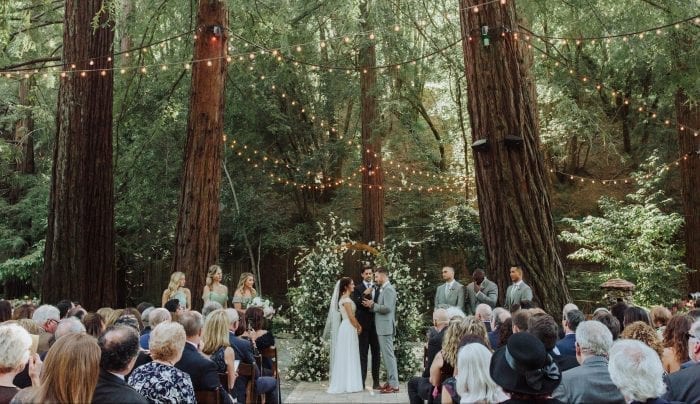When setting my intentions for 2019, I wrote down “Become a World-Class Facilitator.” I didn’t really know what that meant, but I had a clue.
I was enjoying developing the skill of facilitation, found the work deeply meaningful and fun, and realised I could make a decent living from it. I wanted more. And I wanted to become better. There were a handful of speakers and facilitators I considered world-class: Simon Sinek, Elizabeth Gilbert, Daniel Pink, Priya Parker, Seth Godin, to name a few. I’d also been lucky to work beside excellent facilitators at Interactive Workshops.
These master facilitators seem to occupy a space between fiery preacher, human connector, and shaman. They steal lightning from the gods and can electrify anyone within earshot. They awaken something dormant inside you. They inspire – literally meaning blow breath — into you. Effortlessly (or seemingly so), they impart a truth, inject a viral idea, hold up a mirror through which you see yourself (and your blindspots) more clearly. Not merely through their content, but through their humanness, their honesty, their personal narrative.
I touched sparks of that lightning over the last several years running talks and workshops at Escape The City. I was good; at times maybe even great. But not yet world-class.
Closing the Gap to World-Class
How does one become world-class in anything? This American Life host Ira Glass talks about a Gap. If you want to become excellent – in writing, painting, designing, speaking, managing, leading, anything – there’s “a gap” between your taste and your ability. You know what world-class looks like, what it feels like…but no matter how hard you try, you fall short.
Your taste is world-class. But your ability isn’t up to snuff yet. The only way to close the gap, Glass says, is through producing a volume of work.
“It is only by going through a volume of work that you will close that gap.” – Ira Glass, on closing the Gap

It’s like Shinichi Suzuki says: “Knowledge is not skill. Knowledge plus ten thousand times is skill.” To become a world-class facilitator, I needed to continue to develop a deep body of work as a facilitator. In other words, I needed to facilitate a boatload of workshops. Ten thousand perhaps.
But not simply plug-and-play workshops, ones I’ve always done. To become world-class, I’d need to flex new facilitation muscles in new ways. Just like world-class athletes cross-train to improve in their main sport, I needed to cross-train around my sport of facilitation.
Something magical happens when you put an intention into the world. Mentors emerge. Doors open where there were no doors before. Two opportunities to cross-train appeared: my sister’s wedding and a multinational mutiny.
Facilitating a Wedding
I’m not an anxious person, but in the days and hours leading up to my sister’s wedding, I was a wreck. The gravity of the moment weighed on my heart like a kettlebell: it was my responsibility to officiate the whole damn thing.
As a facilitator, you can botch a workshop, and the worst-case scenario is that people will be displeased. You might not get booked again. You could lose the client. But most of that is recoverable. There will be other clients. There will be other workshops.
Weddings are different. Couples don’t get married with the intention that it’s going to be one of several. This is an all-in moment. They’ve committed. This is their big bet, their one shot. As the officiant, it’s your job to make sure the ceremony is incredibly special and runs smoothly.
Like some facilitation work, the brief for my sister’s wedding was simultaneously vague and quite specific: make it spiritual, but not religious; unique, but not weird; have fun, but of course, this is a gravely serious occasion; be yourself, but make sure to fulfil your legal duty as officiant. I needed to say certain things, in a certain order, in a certain way. Otherwise, the marriage might be null and void. Or even worse: everyone has a terrible time.
I remember the first time I was given a workshop session plan to deliver. It was signed off by the client and delivered a hundred times before. I studied the content, prepared, and nailed it to a T. But I felt horrible facilitating it. I was a robot, regurgitating someone else’s ideas. It was the shell of a world-class experience – loads of bright ideas with none of the heart and personal narrative that got me into this work in the first place.
Getting bogged down in the structure and content of the wedding, I was heading down a similar path. I forgot what I was truly facilitating: the celebration of my sister and her husband’s union. It was my job to narrate their relationship through my eyes as a brother and a friend. This was personal, not a process.
In the final days leading up to the ceremony, I rewrote the entire script. I told the story — my story — of my sister and her husband’s relationship. Like a good facilitator, I practiced. I used notes, but memorised the important bits. When it was game time, I stood upfront with the groom. The crowd gathered. The music played. It was time to work. Time to do my job.
As I began speaking, my heart lightened and the butterflies lifted. There were laughs. There were tears. In all the right places too. After the ceremony, guest after guest told me how much my words meant to them, how special my ode to my sister and her husband was. I did it! And it may have been some of my best work.

I learned (or perhaps relearned) an important lesson that day:
World-class facilitation is deeply personal.
Whether a wedding or a workshop, master facilitators aren’t afraid to bring their stories and experiences into the room; in fact, it’s what makes them so powerful.
Facilitating a Mutiny
24 hours later I was on a flight to Madrid to deliver a workshop for 35 Airbus employees flying from all over the world. The perfect plan was in place. The posters printed. The facilitators were prepped, ready and eager. We arrived at the space early to set up, prep flip charts, and practice our handoffs.
People gathered. We turned our smiles up to 10. Susan welcomed the group. Jonna kicked us off. I stood up to do my bit.
I began by sharing how I’d just officiated my sister’s wedding, tied it to leadership (see Lesson 1: make it personal), shared our plan was for the day, yadda yadda yadda… and quickly realised I had walked straight into a land mine. 35 faces of confusion and disapproval stared back at me.
We had a big, beautiful, full day of facilitation planned. And the group wanted none of it. Challenging questions and skepticism fired back at me like shrapnel. In that moment, I was Neo from The Matrix, bending spacetime to dodge bullets. It was total mutiny on board.
Boxer Mike Tyson has a saying: “Everyone has a plan until they get punched in the mouth.” It doesn’t matter how knowledgeable or inspiring you are as a facilitator, or how deeply personal your content. If your audience doesn’t want what you’re there to deliver, no amount of talent, skill, content or confidence will change their minds. Only one thing can save you: to dance.
Which brings me to another lesson: World-class facilitation is a dance.
You’re a dancer and your partner is the entire room. To dance is to move, but mostly, to listen. Not merely with your ears, but with your body. To feel the pulse of the room and move with it like a murmuration of starlings.
While I was fielding bullets, Jonna and Susan scrapped our plan and crafted up a new one. The hours of planning, the money poured into design and printing, the time spent practicing — most of it tossed out the window. For the rest of the day, we became improv dancers, listening to the room and moving with it. We won back the room, and eventually the whole day, not with our expertise, but with our skilful dancing. We listened and adjusted accordingly.
The dichotomy of these two experiences was humbling. Within the span of 24 hours, I went from hero to zero. The experience delivered a third lesson:
World-class facilitation isn’t about the facilitator at all.
It’s easy to think as a facilitator you’re important. In a way you are, but not in the way you might first think. You’re merely the conduit to an experience. You make the content deeply personal so that it resonates deeply with the person you’re sharing it with. You dance with the room because you’re there to serve the room.
Like the masters, you’re merely there to ignite the spark. To inspire, breathe the breath within. In its purest form, facilitation is a gift.
There are surely more lessons to learn on my quest to become world-class. But faith tells me these three will take me far.
